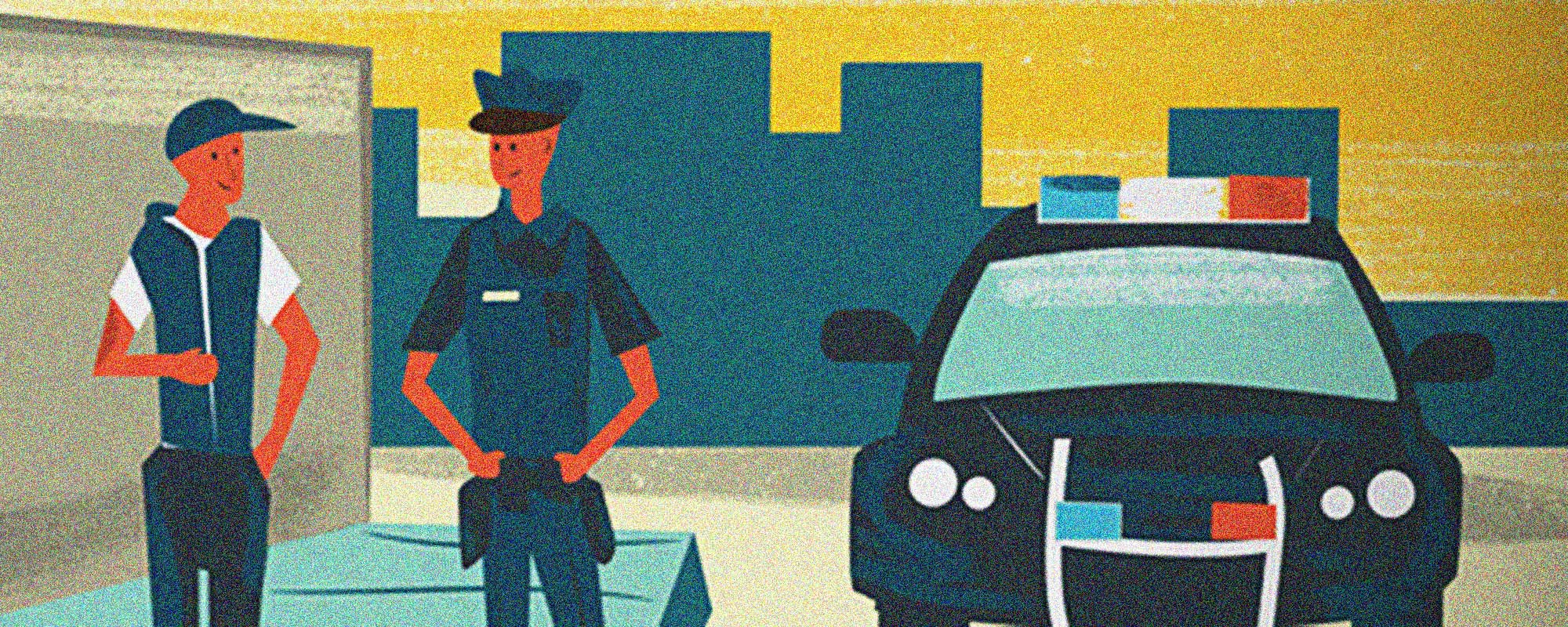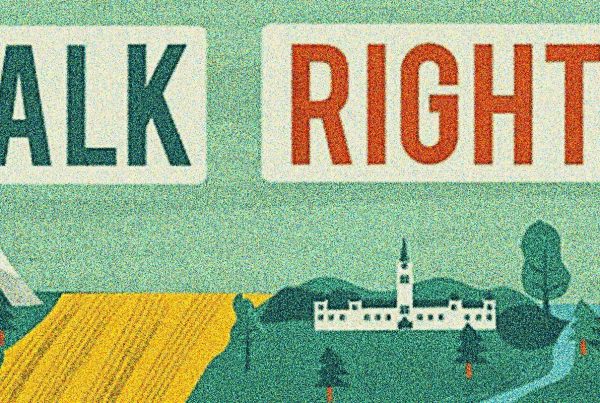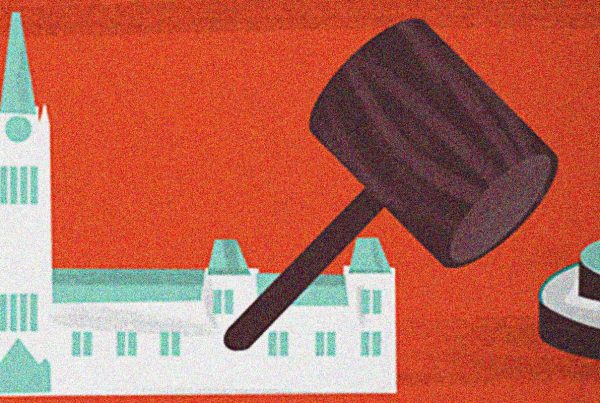Because the Learn section of TalkRights features content produced by CCLA volunteers and interviews with experts in their own words, opinions expressed here do not necessarily represent the CCLA’s own policies or positions. For official publications, key reports, position papers, legal documentation, and up-to-date news about the CCLA’s work, check out our focus ares.
Have you ever wondered who polices the police? This question sounds paradoxical but the answer to it is crucial for upholding the rule of law. In Canada, the police are the main institution responsible for law enforcement. But police officers can break the law too. When a police officer breaks the law, it is important that the police’s special powers over law enforcement aren’t misused in a way that allows the officer to escape a proper investigation. The civilian oversight of police is crucial for holding police accountable when police break the law or otherwise engage in wrongdoing. This article discusses the role of civilian oversight and how it contributes to policing the police.
WHAT IS CIVILIAN OVERSIGHT OF THE POLICE?
Many institutions in Canadian society play a role in the civilian oversight of police forces. That’s because, in general terms, civilian oversight of police just means the oversight of police activities by people who aren’t active members of the police force that they are overseeing. This definition is so broad that it includes Canadian courts, since judges can review a police service’s actions when someone sues the police. And it could also include politicians and even the media. The Toronto Star, for example, investigated racial bias in Toronto’s police force.
However, when experts talk about civilian oversight of police in Canada, they tend to focus on two types of civilian-led oversight mechanisms.[1] The first type receives complaints from the public concerning a police officer’s non-criminal misconduct. This article will refer to this mechanism as a public complaint process. The second type investigates police officers whose actions led to the serious injury or death of an individual and police officers who’ve allegedly broken the law. We’ll call this mechanism an investigative agency.
While these mechanisms have different roles, they both tend to be led and sometimes staffed by people who aren’t currently members of a police force. And they also have some authority over the police service they oversee. This intentionally makes them an independent check on police power. As you’ll see below, these oversight mechanisms are primarily responsible for policing the police.
HOW DOES CIVILIAN OVERSIGHT OF THE POLICE WORK?
All provincial governments have the authority to enact their own version of a public complaint process and an investigative agency in their province.[2] As a result, there are some variations in how these mechanisms operate in different provinces. However, there are some similarities.
First, every province has created a public complaint process to take complaints from the public concerning non-criminal police misconduct.[3] The complaints typically concern violations of the standards of conduct that police officers must follow. In Manitoba, for example, a person can make a complaint through the province’s public complaint process if she believes an on-duty police officer was uncivil or discourteous to her. Once a complaint is made, the complaint is usually reviewed by the body overseeing the complaints process to make sure it is legitimate. If the complaint is legitimate, the body provides the complaint to the police service that employs the police officer listed in the complaint. The body will generally oversee the police service’s handling of the complaint, ensuring it is dealt with correctly.[4]
Investigative agencies operate differently. When a serious incident occurs, the typical protocol is for the police service to inform the investigative agency in their province of the incident.[5] The agency will then investigate the incident and determine whether there was any wrongdoing. If the agency finds that there was criminal wrongdoing, some investigative agencies can lay criminal charges while others only have the power to recommend criminal charges. The public can’t directly initiate an investigative agency’s inquiry into an allegation that a police officer broke the law. Rather, they must report the allegation through a public complaints process or a police service, which can refer the complaint to an investigative agency. While most provinces have enacted an agency to investigate serious wrongdoing by police, Saskatchewan and some maritime provinces haven’t yet created such a body.[6]
WHY DO WE NEED CIVILIAN OVERSIGHT OF POLICE?
One major argument in favour of civilian oversight is its role in two important aims: ensuring public confidence in the police and achieving the rule of law.[7] Public confidence in a police service helps the police service maintain public safety. A victim of crime, for example, may not call the police if she thinks the police are likely to mistreat her or mishandle her investigation. The rule of law is also important because it’s the concept that everyone is subject to the law, which is a fundamental principle in Canadian democracy.
Civilian oversight of police can meet these twin aims since it helps ensure complaints and investigations regarding the police are handled impartially. Police may have a conflict of interest when they investigate themselves. Since civilian-led oversight mechanisms are at an arm’s length from the police, these oversight bodies can avoid the conflict that police services face. As a result, civilian oversight mechanisms can ensure police wrongdoing is properly investigated and officers are disciplined appropriately. In doing so, these mechanisms uphold the rule of law because they hold the police accountable to the law. These mechanisms also enhance public confidence in the police. The public can trust that when a police officer is found by a civilian oversight body not to have violated a law or code of conduct, the officer has acted within the bounds of conduct expected of a police officer.
WHAT CRITICISMS DOES CIVILIAN OVERSIGHT FACE?
Just as the operation and structure of civilian oversight agencies vary across provinces, the criticism these organization face changes depending on the form they take in a province. However, some criticisms are similar across provinces.
One common criticism is that civilian oversight mechanisms are not immune from the bias that police forces face when they self-investigate. For example, Alberta’s civilian-led investigative agency was criticized for not being fully independent from the police since its investigators are drawn from police forces across the province. Ontario’s SIU has faced similar criticism from the Ontario ombudsman. In British Columbia, an audit of the province public complaint process found that many complaints against police were improperly investigated despite civilian oversight.
One broader criticism is that the twin aims of oversight bodies are sometimes at odds with each other. Kent Roach, a University of Toronto law professor, notes that investigative agencies can bring criminal charges against police but police officers are often successful in defending themselves against these charges.[8] In Ontario, only one investigation into a police shooting since 1990 has led to a successful criminal conviction. That was the investigation into James Forcillo, a Toronto police officer convicted for attempted murder after he fatally shot Sammy Yatim in 2013. This is because Canadian law sets a high bar for criminal convictions. This outcome might be satisfactory from the perspective of the rule of law. But Roach thinks that the outcome is unsatisfactory from the perspective of ensuring public confidence in the police. Many people might accept that a police officer might not be guilty in a court of law but that the police officer’s conduct was still improper.
What do these criticisms mean for civilian led oversight? These criticisms highlight that civilian mechanisms are still a work in progress. And, as Roach’s criticism suggests, some aspects of policing that undermine public confidence in police may not be addressed exclusively through a legalistic approach.
CONCLUSION
Civilian – led oversight of police is now a common feature of policing in Canada. The main responsibility for policing the police falls on two types of mechanisms: public complaint processes and investigative agencies. One main motive for using these mechanisms is that they uphold public confidence in police and maintain the rule of law by keeping police accountable for their actions. The criticisms facing these organizations suggest that their oversight is still a work in progress and that we shouldn’t expect that these bodies can succeed in upholding public confidence in police all on their own.
Footnotes:
[1] Ian Scott, “Introduction” in Issues in Civilian Oversight of Policing (Toronto: Canada Law Book, 2014), 2.
[2] Complaints concerning the Royal Canadian Mounted Police, Canada’s federal police service, is overseen by a civilian-led public complaints process dedicated to the RCMP. No investigative agency is dedicated to overseeing serious incidents involving the RCMP.
[3] Supra, note 1.
[4] Ian Scott, “Oversight Overview” in Issues in Civilian Oversight of Policing (Toronto: Canada Law Book, 2014), 38.
[5] Supra, note 4.
[6] Ibid.
[7]Kevin Kunetski and Kelsi Barkway, “Independence in Civilian-Led Investigations of the Police” in Issues in Civilian Oversight of Policing (Toronto: Canada Law Book, 2014), 163.
[8] Kent Roach, “Models of Civilian Police Review” in Issues in Civilian Oversight of Policing (Toronto: Canada Law Book, 2014), 330 – 331.
About the Canadian Civil Liberties Association
The CCLA is an independent, non-profit organization with supporters from across the country. Founded in 1964, the CCLA is a national human rights organization committed to defending the rights, dignity, safety, and freedoms of all people in Canada.
For the Media
For further comments, please contact us at media@ccla.org.




